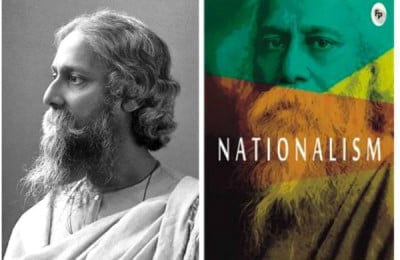I wonder, when my time comes, if my soul will be as bright.
We all are in a state of seeking answers, seeking justifications for the experiences we have had in our life. Just yesterday, I was scrolling through Instagram, and a phrase sprung up on my explore page, that said, ‘If everything happens for a reason, what is the reason?’ This is exactly what a reader might feel while beginning this novel.
A sense of pity arises in the reader as they watch Aman Chandra, the protagonist of the story, seeking answers for the state he was in, both mentally and physically. A young boy who was like an innocent child not knowing what is going to happen, is transferred to the valley of Gods in the Himalayas along with ten other souls who are kidnapped from all over India to fulfill a purpose .Even a reader like me, one who does not prefer fantasy or fiction as their first pick, would be happy to give this book a read. Yes, it is indeed that good.
Magic and hope resides in the beautiful valley of the Gods that produces splendid and striking imagery allowing the reader to completely sink in and crave for more. It is wonderful to read a book that has graphics/illustrations, but what is more intriguing is a text which is successful in creating visual imagery through words. This book is the later. The word building of this novel is worthy of appreciation. While reading through, one might ponder on a plethora of questions. One of them being, how the Garg managed to write the book with so much depth a intricacy? The answer lies in a recent conversation Saksham had with an audience member at an event. There he stated that for ten long years, his mind kept on pumping creative fluids that allowed his book to reach the level of output it has achieved.
The detailing in the events that take place in the novel has been well thought over and influences from his college life can be seen throughout book as well. Additionally, the dynamism through which love is depicted between Aman and her lover acts as a bridge to comprehend the plot of the novel more efficiently. Even though the book looks like a modern remake of the ancient Hindu mythology focusing upon Vedic Gods, which is a popular genre and many people end up writing about it, it has some beautiful elucidations that almost makes us think about Samsara to be a real place.
Not withstanding that the book wonderfully interprets the concept of souls reaching one’s final destination, there were some ideas that may leave the reader questioning about it’s moral perspectives. One such idea being the mention of, ‘What is a woman but a worshipper of her man?’ Since it is a modern remake, talking about souls finding nirvana, with the inclusion of technology and the perspectives of science, the ideas of the more feministic approach could have been inserted. Changing the age old cycle of women depending upon men is crucial especially while writing for people in the 21st century. Nevertheless, the immediate flow of thoughts while writing the book is pivotal and cannot be disregarded. After all, the mind of a writer is different from that of a reader. Everyone has different observations to make.
One’s life can be dotted with unsuccessful journeys and incomplete endings, and you may want to escape hardships. Although it is hard to avoid them completely, this book might hold some answers to your questions. Questions that move you, ones that leave you pondering.
Explore this book with the utmost open mind and let it do it’s magic. I would highly recommend you to pick this up, especially if you are a fantasy-fiction lover. You shouldn’t miss out on it!
Aanya Mehta












